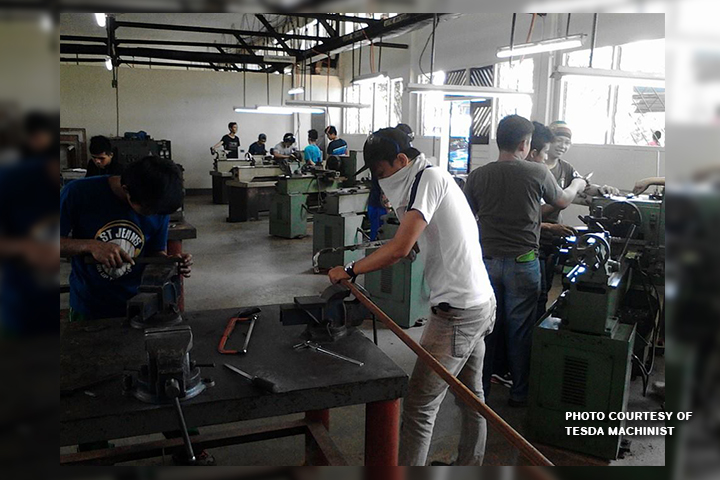Business and Economy
TESDA to create 50K new tech-voc programs to propel economy

Feliciano added that this year is the first time that the government would provide tool kits, such as welding machines, to the scholars. (PNA Photo)
MANILA — With national development as its main goal, the Technical Education and Skills Development Authority (TESDA) will create 50,000 new technical-vocational programs and targets to develop 50 percent of this before President Rodrigo Duterte’s term ends.
TESDA chief, Secretary Guiling Mamondiong, disclosed this on Tuesday, as he spoke at the country’s hosting of the 4th High Officials Meeting (HOM) of Southeast Asia Technical Vocational Education and Training (TVET) in Manila on Sept. 4-5.
Mamondiong said the Philippines currently has 18,000 registered technical-vocational (tech-voc) programs.
He noted that China has more than 100,000 tech-voc courses, giving importance to how these courses help grow its economy.
“We have to provide the competencies that our workers need. We have to support them for us to produce world-class workers,” Mamondiong said.
In a previous interview with the Philippine News Agency (PNA), TESDA Deputy Director General Alvin Feliciano said the Duterte administration has allotted more money for tech-voc courses.
For this year, the government has allocated PHP6.9 billion for free tech-voc courses alone, he said.
Feliciano added that this year is the first time that the government would provide tool kits, such as welding machines, to the scholars.
“The government has seen that tech-voc graduates have the ability to become entrepreneurs, that is why the government wants to give them a complete package,” he said.
Online training
Mamondiong also shared that TESDA will promote online training, assessment, and certification.
With this, he said TESDA would need an improved Internet access. He clarified, however, that he does not think the agency would have a problem with Internet access, since the Department of Information and Communications Technology is working on it.
The TESDA chief noted that the agency would need to adapt to the digital revolution.
“Whenever we talk about industry revolution, some people think robots would eventually replace the labor workforce. I don’t think all the labor workforce would be replaced by robots.
(Maybe) just some,” he said.
Meanwhile, the HOM gathered 180 representatives of Southeast Asian countries. It carried the theme “Moving Together Towards TVET 4.0.”
Mamondiong said the meeting aims to tackle regional initiatives, policies, and TVET education components, such as curriculum and personnel.
“We will discuss new initiatives, and we hope to adopt acommon skills standards in the (region),” he said.





















